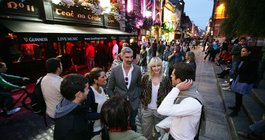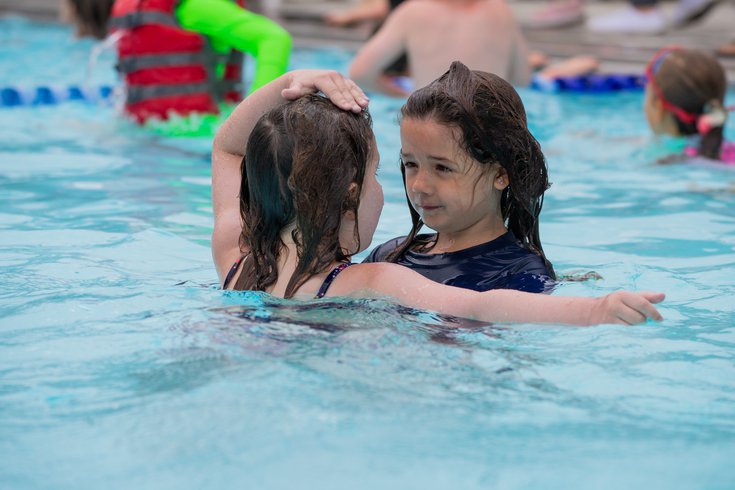
July 20, 2023
 ELLEN C. MILLER/PHILADELPHIA PARKS AND RECREATION VIA FLICKR
ELLEN C. MILLER/PHILADELPHIA PARKS AND RECREATION VIA FLICKR
There are many free ways to beat the Philly summer heat, including pools, libraries, cooling centers and spraygrounds.
If it feels like it’s hotter than ever this summer, well, that’s because it is.
Earlier this month, the planet experienced its three hottest days ever recorded between July 3-5, with global temperatures averaging 62.9 degrees Fahrenheit on July 4th. In Philadelphia, temperatures didn’t quite reach the local all-time record of 107 degrees in July 1936, but this summer has nonetheless been a scorcher.
As climate change continues to drive up global temperatures, it’s only going to get hotter from here on out. In Philadelphia, the city is preparing for the increasingly brutal onslaught of heat by making more bricks-and-mortar cooling centers accessible to the public and doing its best to keep swimming pools and spraygrounds open in the summer.
For many, the peak periods of summer heat offer the perfect excuse to drive down to the Jersey Shore or otherwise escape the city for cooler environs. Of course, not everyone has that luxury and let’s face it: the number of hot days per summer is likely to increase over time. To find relief from the heat without leaving the city, Philadelphia residents have a few options that are free and relatively accessible.
In addition to dozens of public pools, Philadelphia is home to over 90 water-based play spaces like spraygrounds, splash pads and other Parks & Rec sites that feature sprinklers or misters. On especially sweltering summer days, these spaces can be a nice alternative to public swimming pools, day trips to the beach or less advisable Philly summertime traditions like illegally cracking open a fire hydrant or taking a dip in a dumpster.
City-designated spraygrounds and other water-based public spaces are open seven days a week, from 11 a.m. to 7 p.m. on weekdays and from 12-5 p.m. on weekends.
Want to find a sprayground near you? Philadelphia Parks & Rec offers a searchable map that lets you do exactly that.
When temperatures get especially unbearable – that is, hot enough for the city to declare a health emergency – the city is ready to turn public libraries, rec centers and even idling SEPTA buses into cooling centers where people can take refuge. The idea of using parked SEPTA buses for this purpose took hold during the height of the pandemic in 2020, when indoor public spaces like libraries and rec centers were less safe and shorter-staffed.
This summer, the city wants to move away from bus-based cooling centers and plans to open cooling centers in 21 rec centers, 13 libraries, 10 housing authority facilities and six senior centers, according to a report from WHYY’s PlanPhilly. Buses may still be deployed in some places if necessary, but the city wants to prioritize more spacious and comfortable spaces with bathrooms and activities.
The Philadelphia Office of Emergency Management has yet to announce this year’s official list of designated cooling center locations, even though we’re already approaching August and have had several very hot days. As hot as it’s been this summer, the city has not yet declared an official health emergency like it did last July and August when heat waves threatened to hit at least 100 degrees.
In the meantime, Philly’s public libraries are still a perfectly fine place to escape the heat, as long as one adheres to the Free Library’s rules for acceptable behavior.
Philadelphia has a rich history of public outdoor swimming pools, opening the first-ever city pool in 1884 and at one point boasting more pools than any other U.S. city. Today, Philly has a total of 70 public pools, although nine of them are currently closed for repair. Despite ongoing staffing issues that have kept some of the city’s pools closed in recent summers, the remaining 61 pools are expected to open this summer – albeit, some of them won’t open until late July or early August due to a nationwide lifeguard shortage.
Public pools in the city are generally free to access and open to the public. Philadelphia Parks and Recreation has a handy searchable map of swimming pools on its website. You can also find a complete list of the city's public pools below.